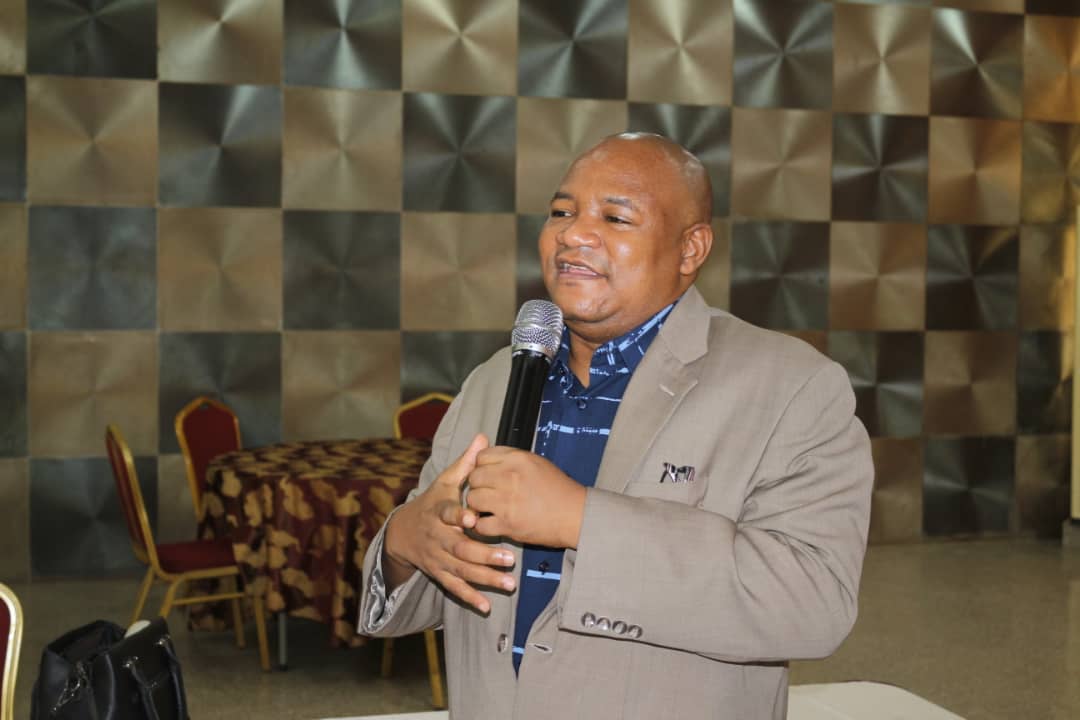By Hassan Zayamu
Few days ago, the Africa Health Budged Network (AHBN) organised a two-day retreat for journalists from across the country in Abuja, to enhance their capacity to improve reportage and use the power of pen to hold government accountable.
In this exclusive interview with Guest Reporter, Hassan Zayamu, Coordinator of the AHBN, Dr Aminu Magashi Garba, spoke on many national issues including the N500 billion COVID-19 stimulus funds, commitment made by the federal government to fund family planning, RMNCH+, need for local vaccine production and other issues. Excerpt:
What does Africa Health Budged Network (AHBN) wants to achieve by putting together this two-day retreat for journalists?
The Africa Health Budget Network (AHBN) is committed to improving healthcare financing reforms in Nigeria. It is fully committed to improving health budget performance, allocation, releases and also expenditure in Nigeria.
We brought the media together to enhance their capacity to improve reportage and to also use the power of the pen to hold government to account. So, during the two-day retreat, we had together journalists from the radio, online, TV, print media and the new media.
You will recall that last year, the National Assembly appropriated N500 billion as stimulus package for COVID-19 in Nigeria. This is equivalent to $1.4 billion as contribution from the International Monetary Fund (IMF) to the Nigerian government.
We have done a flier analyzing all these expenditure and we are hoping that the media will use this information to hold the government to account.
For example, in this N500 billion, N126 billion was earmarked to the health sector. 10 billion naira was to improve local vaccine production in Nigeria. Another money was earmarked to set up molecular laboratories and N20 billion allocated for hazard allowance.
In short, a lot of money was allocated to ensure that there is response and improved performance in the health sector.
Also, we showed the media the letter Nigerian Government through the Minister of Health signed as a commitment to improve Reproductive, Newborn, Maternal and Child Health (RNMCH+N). The Minister has also signed commitment to improve immunization, family planning, nutrition, water in healthcare facilities.
We are empowering the media to ensure that all these information is out to the public so that they can hold government to account to deliver for Nigerians.
Most times it is not the commitment that is the issue, but the implementation. Are you optimistic that these commitments made by the government to improve Reproductive, Newborn, Maternal and Child Health will see the light of the day?
We are optimistic not because we have seen a lot of positive progress. We are optimistic because of the partnership we are building including the media, the National Assembly, CSOs and professional bodies. That is why we are optimistic. We can put all our heads together and hold the government to account. We are optimistic that changes will happen. There is power in partnership; there is power in working together to deliver for Nigeria.
We are calling on the government that this is a commitment made for Nigerians and there is no excuse not to deliver on the promise.
What is your take on the PMNCH-4 call to action as it concerns Nigeria?
There are seven calls to action by PMNCH. One of them is to do with human resources for health, like the payment of health workers in general and also improving infrastructure in our facilities and creating enabling environment for health workers.
My take is that this is a very important call to action. You cannot expect health workers to perform at optimum level if you are not paying them their entitlement. We call on the Nigerian government to respect all agreement signed by professional bodies in the health sector including doctors Nurses and Midwives, pharmacists and others.
Recall that the Nigerian government has committed to allocated about $1.4million every year which is around N1.2 billion for family planning services. We call on the government to implement this and ensure the release of the fund.
The money was not allocated in the 2021 budget line for family planning. We call on Minister of Finance and Health to work together to allocate that money for family planning. If you look at the population of Nigeria which is over 200 million and a lot of people are not gainfully employed because of scarce resources. We need to invest in family planning to manage our population very well.
Out of the 500 billion stimulus fund for COVID-19, only 126 billion was earmarked for health, are you comfortable with that?
N126 billion is a lot of money. If you look at the entire package of the Basic Health Care Provision Fund (BHCPF) is N35 billion but we are celebrating that money. Now, we are given additional N126 billion for COVID-19 response. It is something to celebrate.
But we are still calling on the government to put these monies into use to provide a response for Nigerians.
Within this N126 billion there is N20 billion for hazard allowance, there is N10 billion for vaccine production, there is research and documentation, there is money for Intensive Care Unit, there is also money for training and retraining and that for monitoring and evaluation.
Some research institutes have issues of funds, what will be your advice on how the N10 billion meant to research should be utilised?
This N10 billion, certainly will not be enough to start manufacturing new vaccine. The government should use this money to provide the enabling environment.
For example, we need to develop the business skills for manufacturing vaccine. Are we manufacturing vaccine or developing? These are all issues we need to put heads together. We need to have a multi-sectoral approach for vaccine production. We need to start that conversation. It is time to start local vaccine production to halt infectious disease. This will not be the only epidemic or pandemic in the world. So, we need to prepare ahead.


